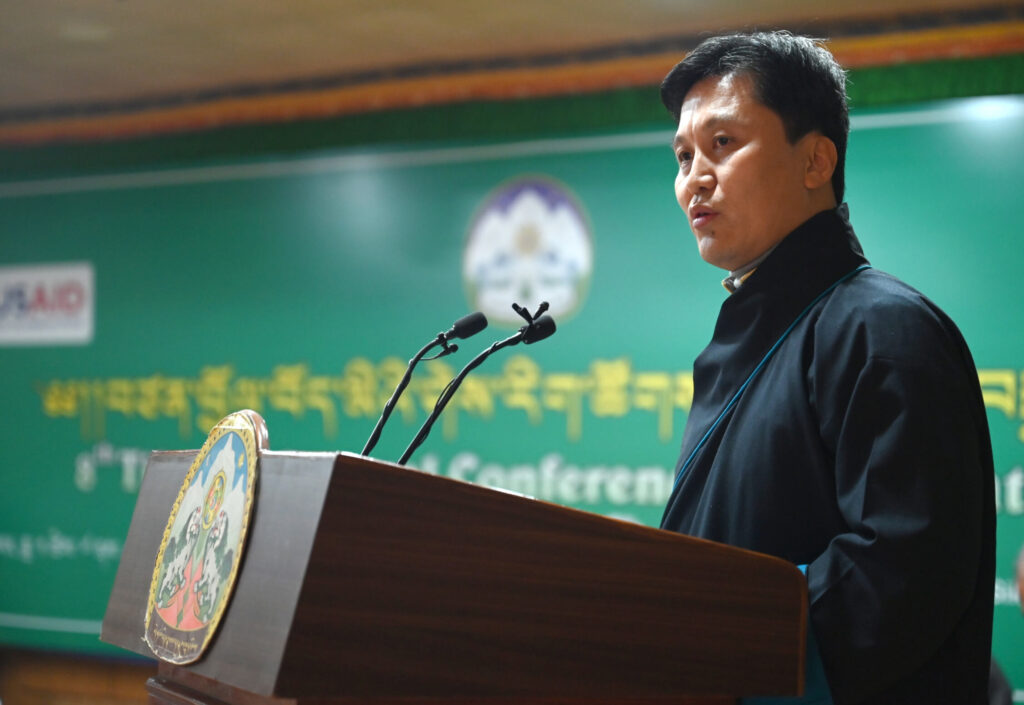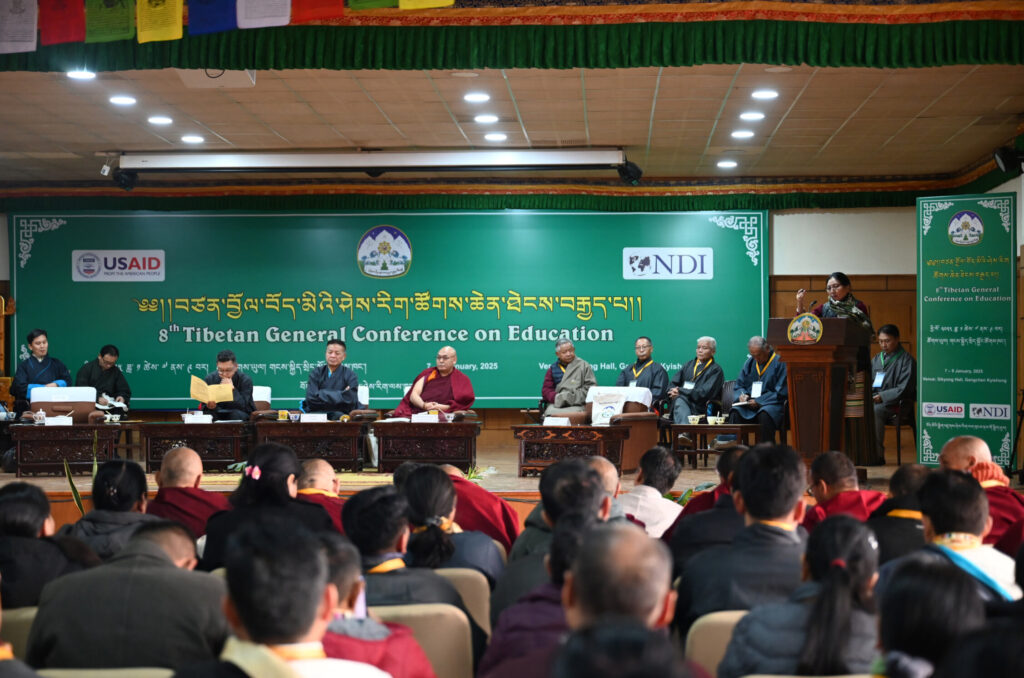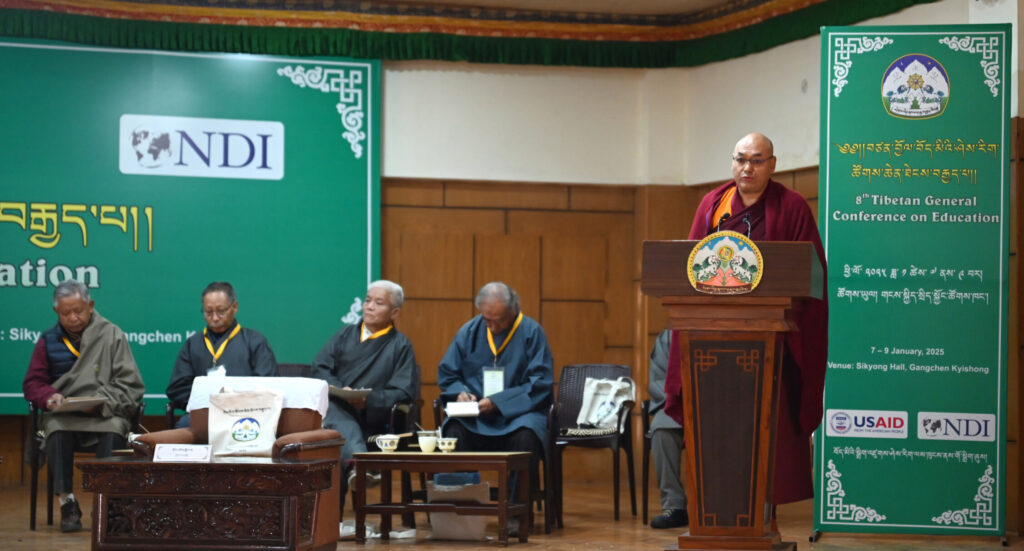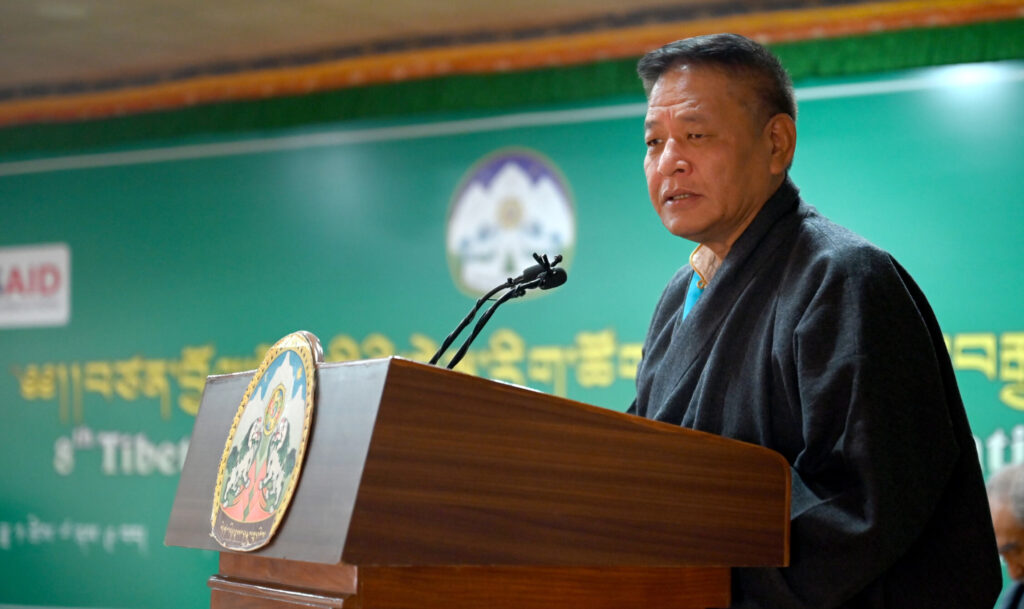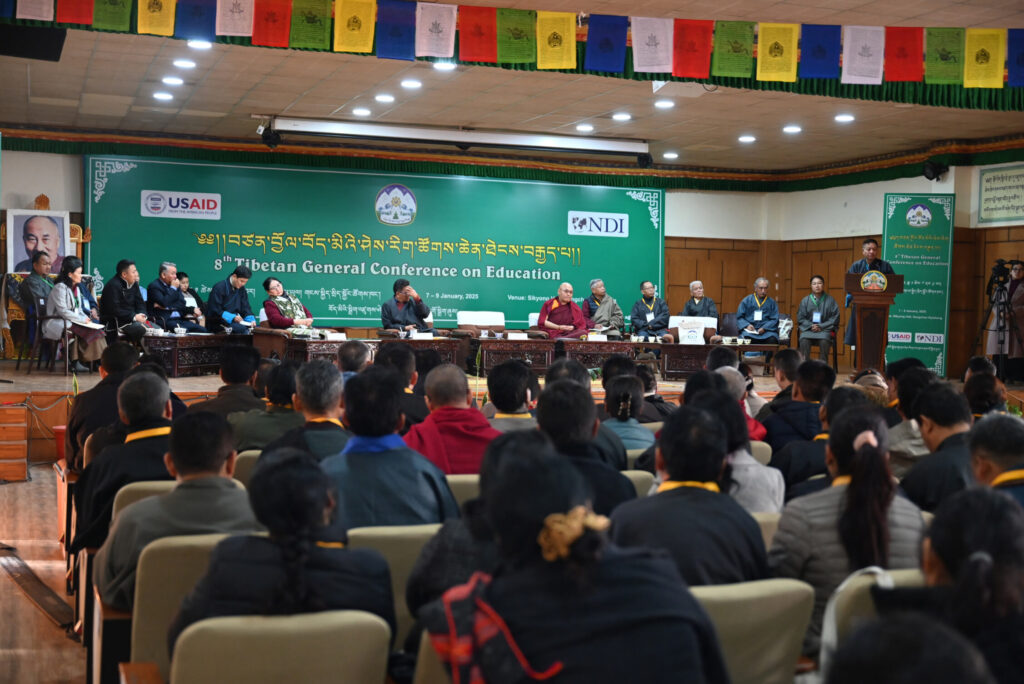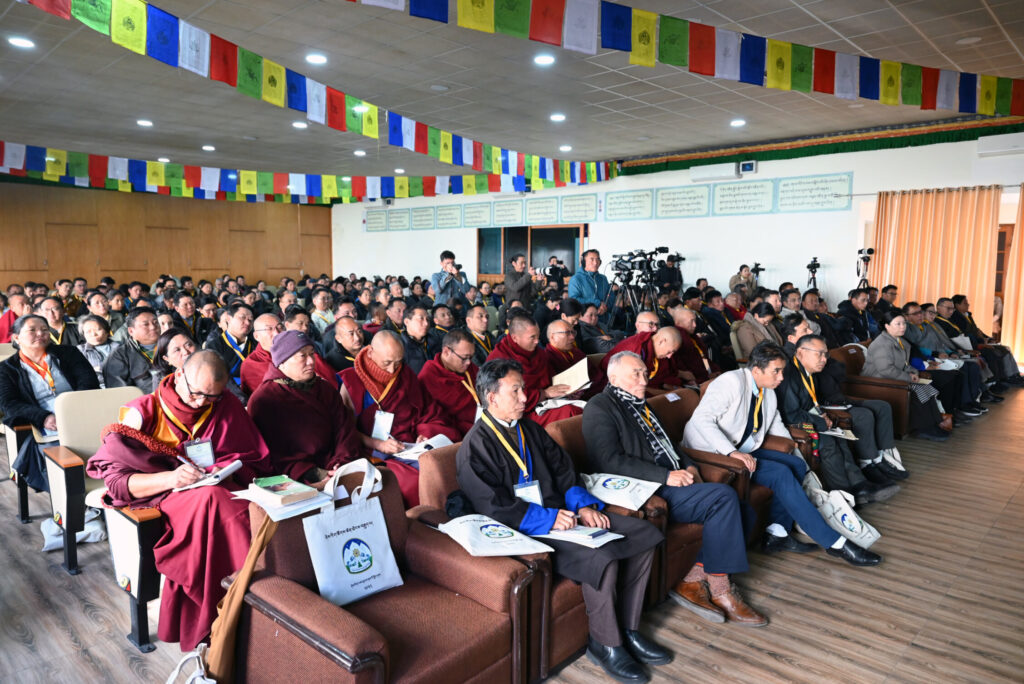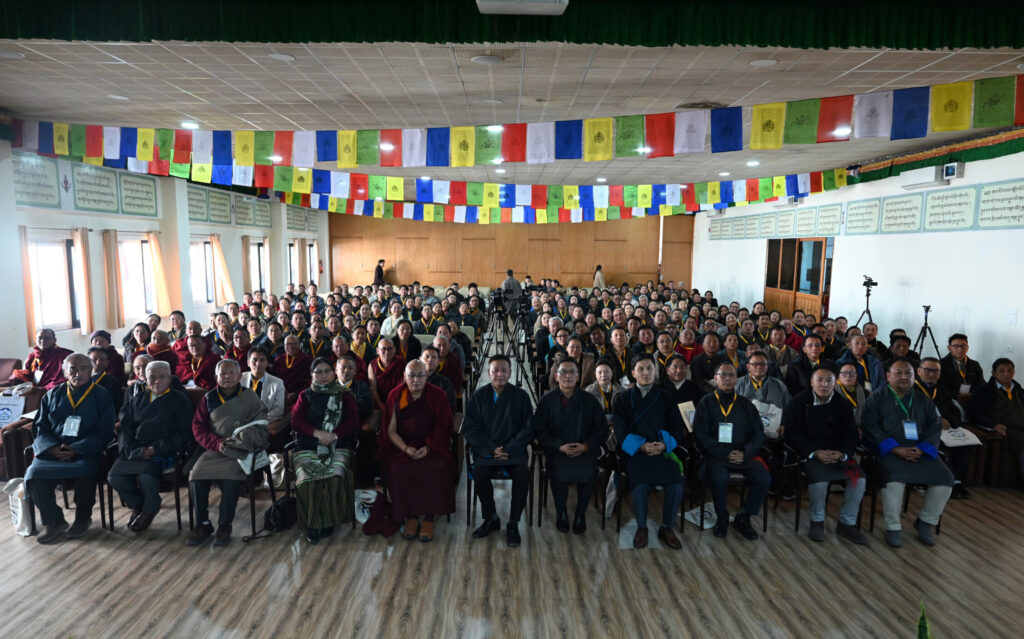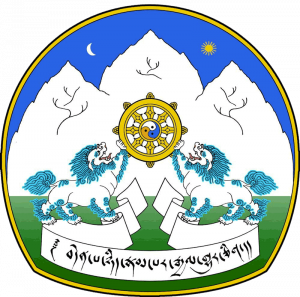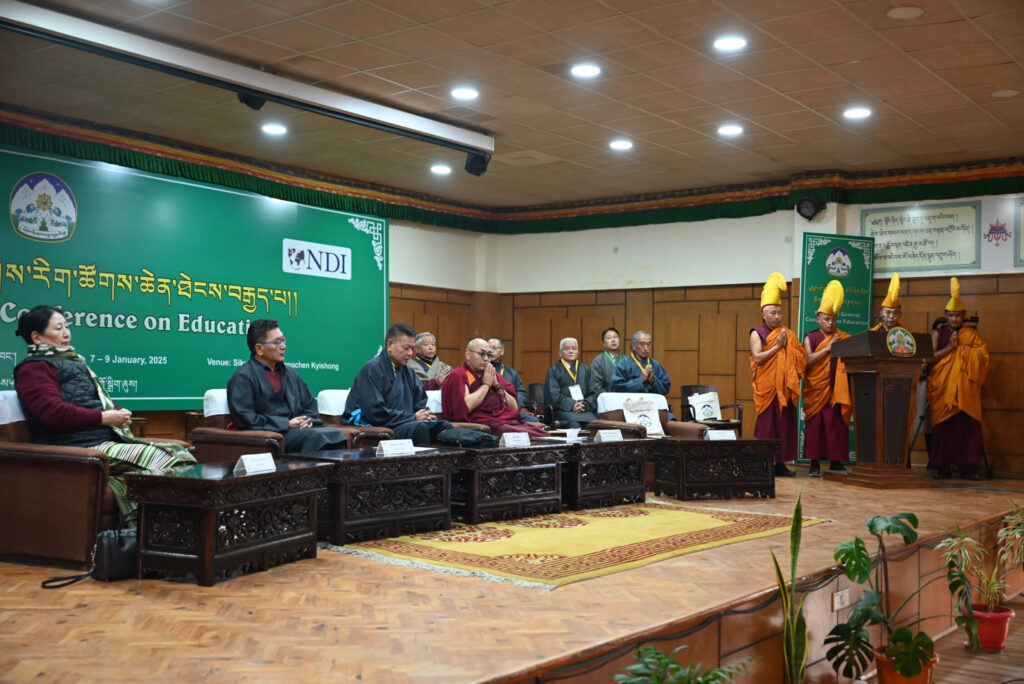
Dharamshala: More than 200 Tibetan educators and school administrators convened in Dharamshala this morning for the 8th Tibetan General Conference on Education, held at the Sikyong Hall in Gangchen Kyishong. The event, organised by the Department of Education, Central Tibetan Administration (CTA), aimed to address key issues surrounding the Tibetan education system and shape its future trajectory.
The inaugural ceremony was graced by Sikyong Penpa Tsering, who attended as the chief guest, along with notable dignitaries, including Speaker Khenpo Sonam Tenphel of the Tibetan Parliament in Exile, Tibetan Justice Commissioner Tenzin Lungtok, and Kalon (Minister) Tharlam Dolma Changra of the Department of Education. Secretaries of the Department of Finance and Education, and senior officials representing other departments, as well as heads of the four Tibetan parental education institutions also attended the ceremony.
The conference began with traditional Tibetan offerings and prayers, followed by a moment of silence in remembrance of Tibetan martyrs and their sacrifices.
In his opening address, Education Secretary Jigme Namgyal provided a comprehensive overview of the resolutions adopted during previous conferences and the progress made in implementing those resolutions. He encouraged the attendees to collaborate and adopt new, impactful resolutions that would further benefit the Tibetan education system, emphasising the importance of collective efforts for the community’s educational development.
Following that, Kalon Tharlam Dolma Changra highlighted the central themes of the conference, which aim to foster the quality of education across Tibetan schools. These include initiatives to further consolidate schools for resource optimisation, incorporate Social, Emotional, and Ethical Learning (SEEL) in curricula, and adopt a student-centred approach to teaching that moves away from punitive measures. Another key agenda item addresses the rising number of children with special needs and the challenges of screen time and technology-induced academic decline. Additionally, the conference will discuss the role of Information and Communication Technology (ICT) in education and strategies to safeguard and promote Tibetan cultural and linguistic heritage amid the growing pressures of Chinese assimilation policies. A proposal to establish a Tibetan Teachers’ Day was also introduced as part of the efforts to recognise and honour tutors’ contributions.
Guest of Honour Speaker Khenpo Sonam Tenphel reflected on Tibet’s traditional monastic education system, emphasising the significance of the threefold practices of learning, contemplation, and meditation. He stressed the deep bond between teacher and student, and the essential qualities that educators must possess in their mission to impart knowledge.
In his keynote address, Sikyong Penpa Tsering recalled and expressed heartfelt gratitude for the contributions of His Holiness the Dalai Lama in establishing a strong Tibetan exile community, with an extensive network of schools across India and Nepal. Sikyong acknowledged the vital role of educators in preserving the Tibetan identity and culture and extended his appreciation to all teachers, especially those with lengthy service years.
Sikyong also emphasised the need to include educators from Tibetan language schools in Western and Australasian countries in future conferences, noting the growing number of Tibetan students abroad. He acknowledged the challenges posed by the decline in Tibetan school populations in India due to increasing emigration and urged school administrations to gather accurate data on student numbers. This information, Sikyong said, will help design better educational programs for the future while ensuring compliance with the laws and regulations of the Indian government and respective states.
Sikyong also highlighted the importance of tackling Gender-Based Sexual Violence (GBSV) in schools, calling for a zero-tolerance policy and immediate action in such cases. Addressing discrepancies in teacher salaries across different schools, he proposed that participants discuss ways to standardise and equalise this existing disparity.
Regarding the growing number of Himalayan students seeking enrolment in Tibetan schools, Sikyong stressed the importance of preserving Tibetan linguistic and cultural heritage in collaboration with Himalayan communities, framing this shared heritage as a vital asset for future generations.
As the conference drew to a close, Sikyong encouraged participating schools to take part in the upcoming “Year of Compassion” celebration and to take part in disseminating His Holiness the Dalai Lama’s noble commitments and messages of peace, love and compassion.
Over the course of three-day 8th Tibetan General Conference on Education, consultants, namely Geshe Lhakdor, Director of the Library of Tibetan Works and Archives; Professor Anil Mammen, Professor of Practice at the Centre of Excellence in Teacher Education; Dr Sonam Gyaltsen, former Tibetan Parliamentarian and the incumbent senior Professor of College for Higher Tibetan Studies, Sarah; and Diwo Lhamo Pemba, AMI Primary Trainer, will make presentations on various topics pertaining to the conference.
This conference was supported by USAID through NDI.
